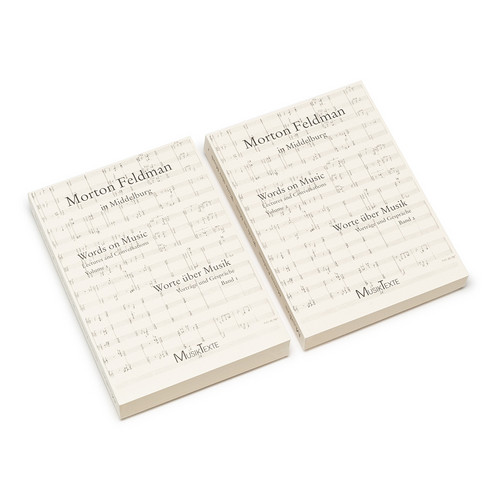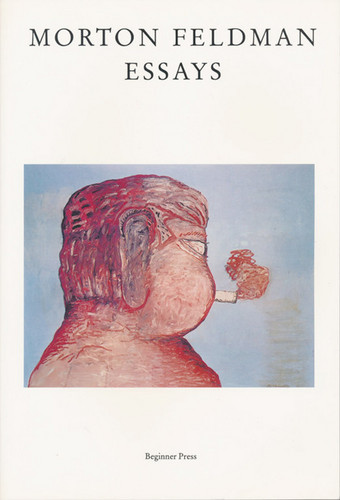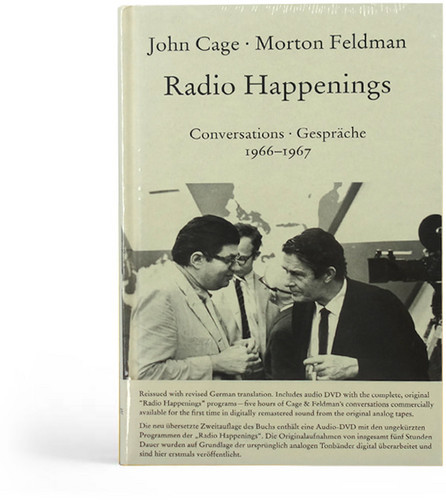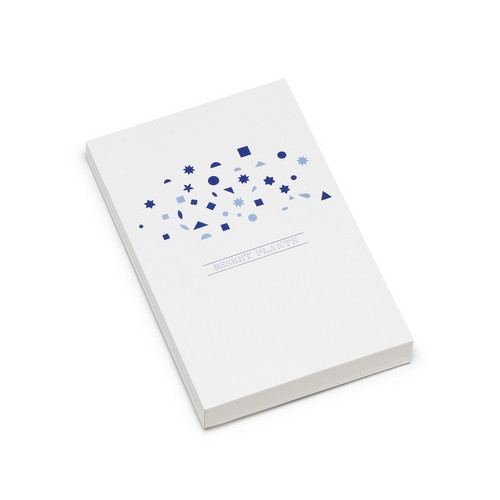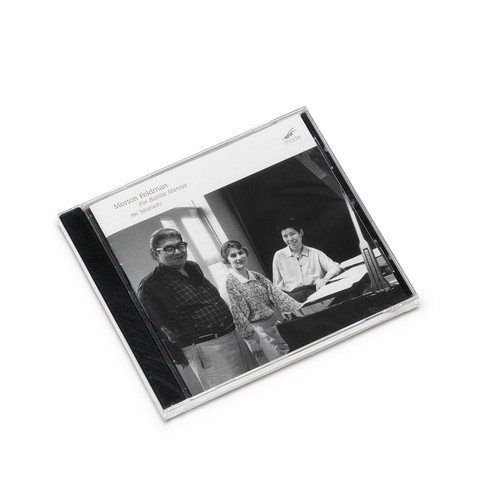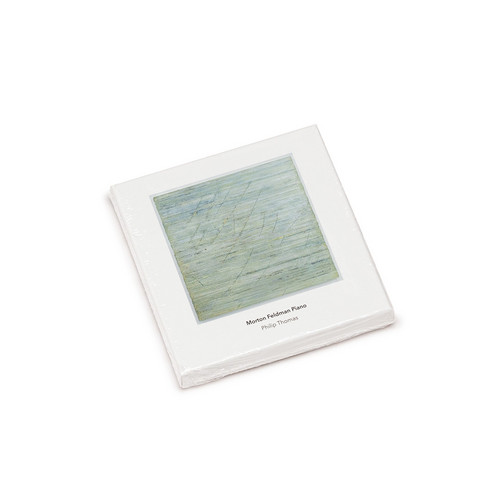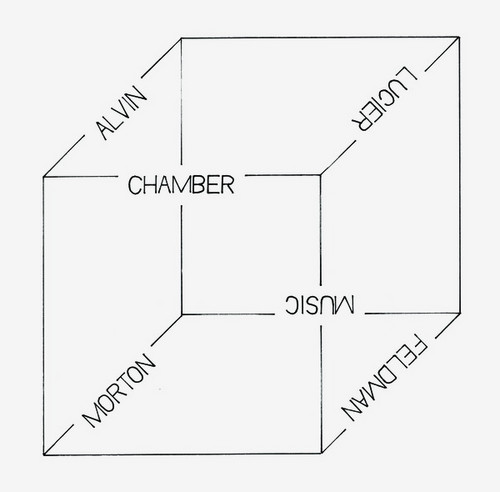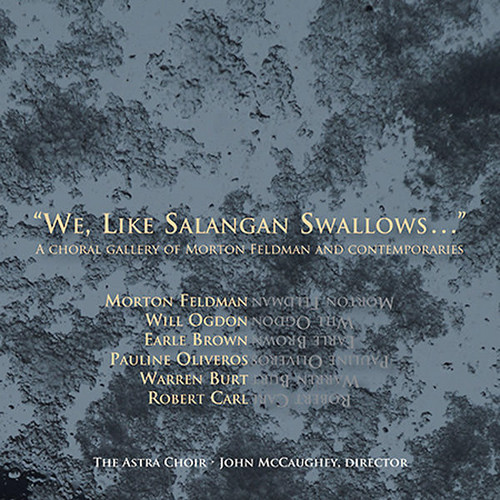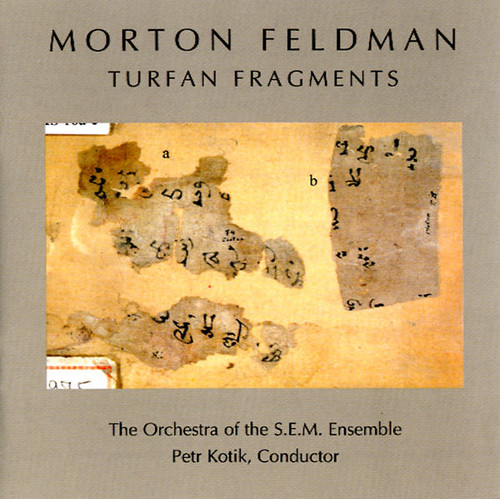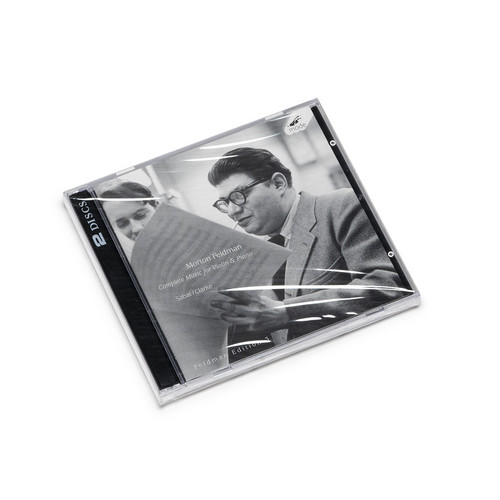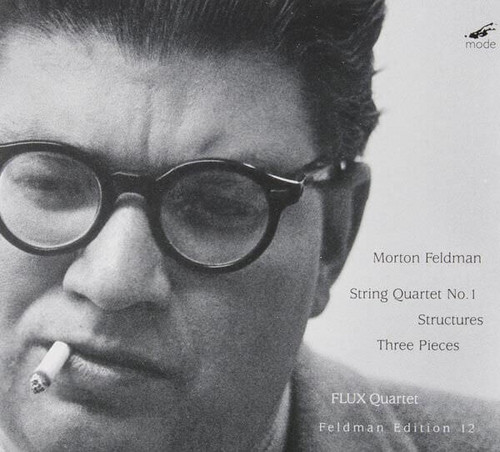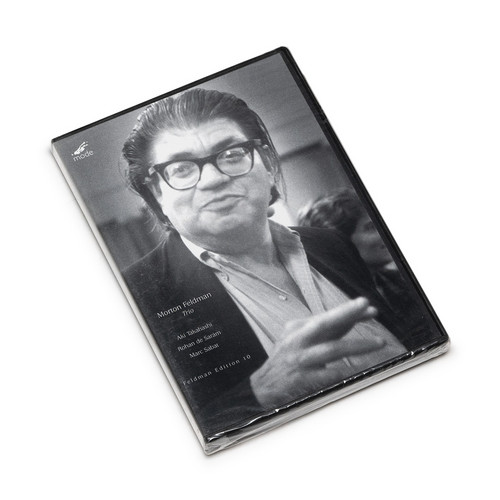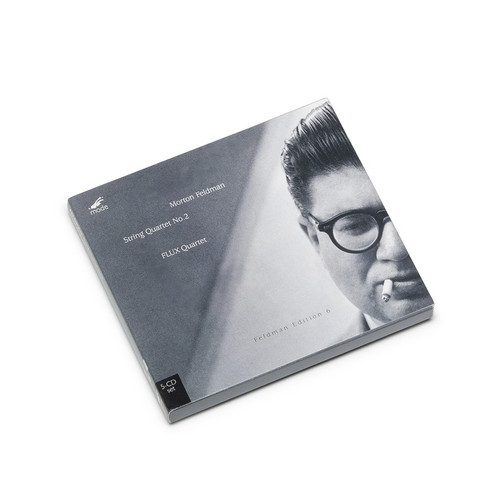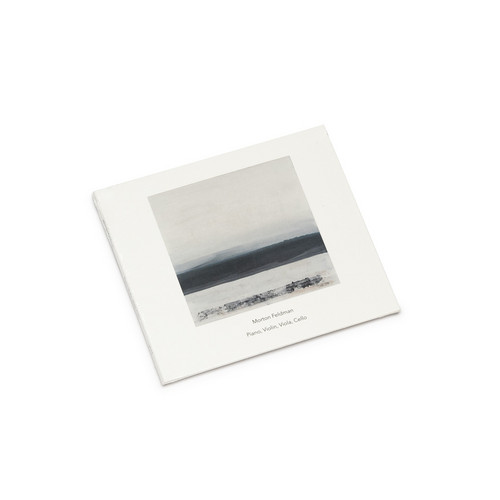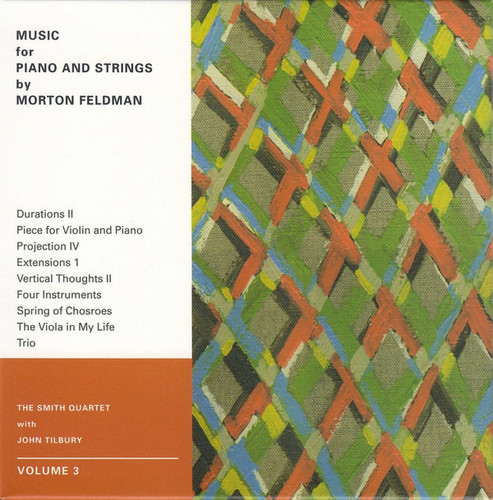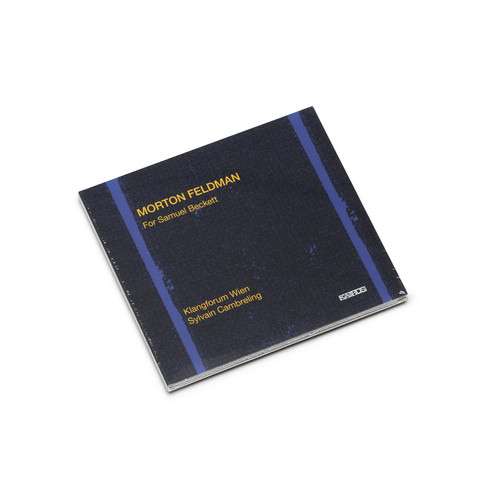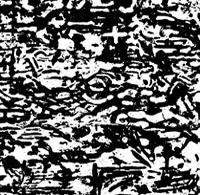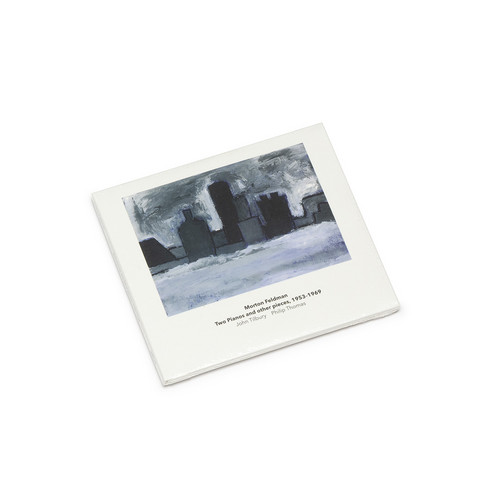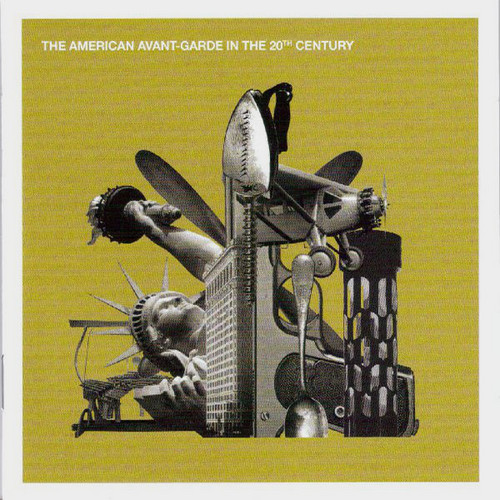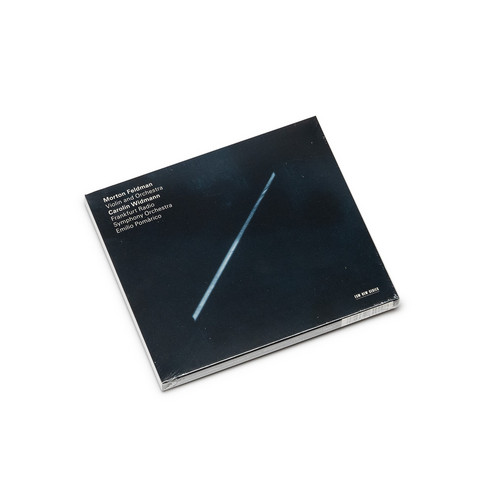Morton Feldman
Morton Feldman (January 12, 1926 – September 3, 1987) was an American composer, born in New York City. A major figure in 20th-century music, Feldman went through several compositional phases. He was a pioneer in aleatoric music and indeterminate music, and in music requiring improvisation. His works are characterized by quietness, slowness, and often by their extreme length, especially in his later music.
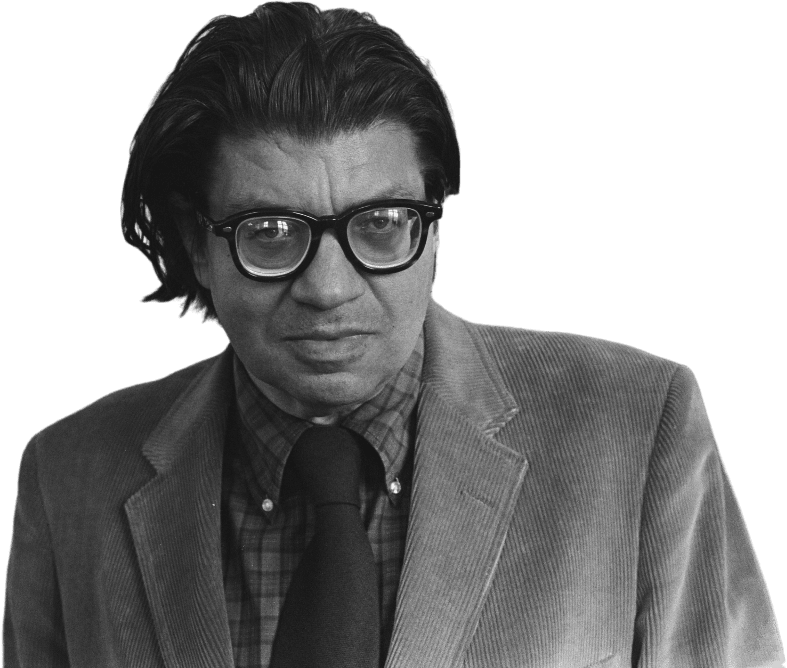
Morton Feldman (January 12, 1926 – September 3, 1987) was an American composer, born in New York City. A major figure in 20th-century music, Feldman went through several compositional phases. He was a pioneer in aleatoric music and indeterminate music, and in music requiring improvisation. His works are characterized by quietness, slowness, and often by their extreme length, especially in his later music.
Morton Feldman in Middelburg: Words on Music
Massive! English-German Edition in two volumes 906 pages. These lectures, discussions were within the last years of Feldman's life, he died in September 1987, these were 1985 to 1987, for the "Nieuwe Muziek" in Middleburg, and the topics, subject matter runs the entire cornocopia of post war music, modernity, complexity, post-modernity, post-truth, post metaphysics. The discussion(s) are with all top-recorgnized composers Kaija Saariho, Iannis Xenakis, pianist Geoffrey D. Madge, Louis Andriessen…
Essays
**Original 1985 edition, few copies in stock** Morton Feldman was a big, brusque Jewish guy from Woodside, Queens—the son of a manufacturer of children’s coats. He worked in the family business until he was forty-four years old, and he later became a professor of music at the State University of New York at Buffalo. He died in 1987, at the age of sixty-one. To almost everyone’s surprise but his own, he turned out to be one of the major composers of the twentieth century, a sovereign artist who o…
Radio Happenings
** 224-page hardcover book with audio DVD of the complete 5-hours of audio from the radio broadcasts** In 1966-67, radio station WBAI in New York City invited composers John Cage and Morton Feldman to make 5 one-hour radio conversations. Unscripted and improvised, they were free to talk about whatever they wished. The fascinating conversations cover music, politics, sociology, current events, the arts and more.These Radio Happenings are legend to fans of these composers, as well as a unique mom…
Desert Plants
**Essential reading!** Walter Zimmermann interviews Morton Feldman, Christian Wolff, John Cage, Philip Corner, Jim Burton, Phil Glass, Steve Reich, Robert Ashley, Alvin Lucier, Joan La Barbara, Pauline Oliveros, David Rosenboom, Richard Teitelbaum, Larry Austin, James Tenney, J. B. Floyd (about Conlon Nancarrow), La Monte Young, Charlemagne Palestine, Charles Morrow, Garrett List, John Mc Guire and Ben Johnston (about Harry Partch).
For Bunita Marcus
"For Bunita Marcus opens with a clear call to our attention. With these first six notes, we step over the threshold and into the journey of the piece. We know that we are in this for the long haul: Morton Feldman’s late works are notorious for being marathons. He composed For Bunita Marcus in 1985, immediately after his four-hour For Philip Guston, and two years after his six-hour String Quartet (II) These earlier works make an hour-long solo piano piece seem short. Still, it is a long time to …
Morton Feldman Piano
Philip Thomas presents a major 5CD collection of virtually all of Morton Feldman's music for piano, the most extensive survey of Feldman's piano music to date. Released by Another Timbre in September 2019, exactly 20 years after John Tilbury's pioneering but long unavailable 4CD set, this box includes several pieces which weren't included there, and three works which have never been released on disc before.
Feldman (1926-1987) was part of a radical group of experimenters alongside John Cage, Chr…
Chamber Music: Alvin Lucier & Morton Feldman
Anthony Burr and Charles Curtis present a collection of curated compositions from Alvin Lucier and Morton Feldman. Two Lucier pieces, "August Moon" and "Trio For Clarinet, Cello & Tuba" are presented here for the first time. Liner notes are excerpted from a lecture on Morton Feldman given by Alvin Lucier. A selection from Alvin Lucier's liner notes: "For Feldman, dynamics serve an acoustical function. When he mitigates a piano attack he reduces that spike of noise that's at the onset of every pi…
We, Like Salangan Swallows...: A Choral Gallery of Morton Feldma
The intense individuality of Morton Feldman's (1926?1987) art and its 'painterly' aspect have tended to push his rich output of works into a zone all of their own, surrounded by a moat of stillness. This recording attempts the reverse process -- to bring his choral works (the previously unrecorded Chorus and Instruments, Voices and Instruments 1, Voices and Instruments 2, and The Swallows of Salangan) into a 'gallery' of other choir compositions of his times. Through the interaction with works o…
Turfan Fragments
Originally released in 2001 by the Dog W/A Bone label, this release features these 2 long pieces: For Samuel Beckett and The Turfan Fragments. Performed by: The Orchestra of the S.E.M. Ensemble, with Petr Kotik, conductor. For Samuel Beckett and The Turfan Fragments are Morton Feldman's only chamber orchestra compositions. Both were commissions: The Turfan Fragments by the Swiss-Italian Radio Orchestra in 1980, For Samuel Beckett by the Schönberg Ensemble, Amsterdam, in 1987. Both titles are des…
Complete Music For Violin & Piano
Here, collected for the first time, are all of Morton Feldman's compositions for violin and piano. It is also a kind of walk through his compositional development, from the Webernesque early Piece for Violin and Piano (1950); through the experiments with graphic notation in Projection 4 (1951); followed by an excursion into the jungle-like density of David Tudor's energy in Extensions 1 (1951); to the cryptic notational riddles of Vertical Thoughts 2 (1963); from the dry carpet-dusting Spring …
String Quartet No. 1
The Flux Quartet follow their acclaimed, best selling recording of Feldman’s monumental 6-hour String Quartet No. 2 (mode 112, 5-CDs or 1-DVD) with this release, thus completing their cycle of Feldman’s string quartets. String Quartet No. 1 is one of Feldman’s earliest long-scale pieces. Unlike other recordings of String Quartet No.1, the FLUX recording respects Feldman’s tempo and all of the repeats, making it the longest recording of the piece.
The set also contains Feldman’s two quartets f…
Trio
The expansive length of Morton Feldman’s Trio (1 hr., 45 min., 22 sec.) requires a new approach to listening, which takes scale, the physical experience of sound, and novel uses of musical memory into consideration. With his delicate manipulation of musical materials, Feldman blurs the listener’s sense of time as their musical memory struggles to distinguish between past and present sounds - listeners are free to lose themselves in the beauty of each musical moment. Aki Takahashi and Rohan…
String Quartet No. 2
In the 1970s Morton Feldman took up the study and collecting of antique Turkish rugs, a highly evolved and exquisite folk art. The rugs are intricately patterned, symmetrical in basic design but with constant variation and displacement in the detailed execution of that design; strikingly and subtly colored, including fine variegations of principal colors resulting from the dyeing process. Analogies are clear to Feldman's music as it takes up large-scale patterning, partly working with his famili…
Piano, Violin, Viola, Cello
Piano, Violin, Viola, Cello marks the culmination of Morton Feldman’s late chamber writing, recorded at Henry Wood Hall in London in 2017 by a quartet comprised of Mark Knoop (piano), Aisha Orazbayeva (violin), Bridget Carey (viola), and Anton Lukoszevieze (cello). The composition, premiered in 1987, unspools over seventy-five minutes as an unhurried expanse - a landscape where micro-variations bring fragile changes within near-stasis, and the weight of each chord, sustain, and silence is palpab…
Music for Piano and Strings by Morton Feldman. Volume 3
At its best Feldman's music can take our breath away, providing a revelatory experience, a transparency which has no need of argument. Thinking back to Piano and String Quartet there are moments of extraordinary beauty when, through a sudden change of register, darkness enshrouds the music; elsewhere the string sound enshrouds the piano arpeggios. Morton Feldman seems to occupy a metaphysical space and encroaches on the domain of spirituality normally associated with religion. Thus art w…
For Samuel Beckett
1999 release - For fifty-five minutes the great American composer Morton Feldman weaves his tapestry of sounds, a pattern always the same and yet never the same, an iridescent, thick fabric, full of details, although these never distract the listener's attention. Feldman met Beckett only once in his life (though Beckett later sent him a postcard on which the composer discovered the text for his opera Neither). He created music of a beguiling tonality and beauty, inspired more by painting and lit…
Clarinet and String Quartet
Saltern returns with a gorgeous new recording of Morton Feldman's Clarinet and String Quartet (1983) performed by Anthony Burr (clarinet), Graeme Jennings (violin), Gascia Ouzounian (violin), Che-Yen Chen (viola) and Charles Curtis (cello). This performance highlights Feldman's interest in notation by treating the slight differences in intonation and rhythm literally and specifically. Recorded by Tom Erbe in the living room of a friend of the musicians. Edition of 400. Housed in jackets print…
Two pianos and other pieces, 1953-1969
Two Pianos and Other Pieces 1953-1969 collects the most experimental and beautiful works for multiple pianos from Morton Feldman’s formative years, exhuming scores rarely captured before - including “Two Pianos,” “Piece for Four Pianos,” “Piano Four Hands,” “Piano Three Hands,” and “Two Pieces for Three Pianos.” Led by pianists John Tilbury and Philip Thomas, the ensemble expands with strings, brass, and percussion, depending on the piece. This collection shines during passages of radical quietn…
The American Avant-Garde in the 20th Century
Following on from our popular primer A Young Person's Guide to the Avant-Garde, LTM now offers a more comprehensive overview of American avant-garde music in the 20th century.Commencing with early pioneers Charles Ives and George Antheil (including the celebrated, Futuristic Ballet Mechanique of 1924), this chronological double disc collection also includes pieces by émigré arrivals in the New World such as Leo Ornstein, Dane Rudhyar and Edgard Varèse, as well homegrown composers including Henry…
Violin & Orchestra
Carolin Widmann’s widely acclaimed ECM recordings have traversed a broad arc of music – from Schubert to Xenakis. Here she turns her attention to one of the pivotal compositions of Morton Feldman. Violin and Orchestra, composed in 1979, marked a new direction, with an almost painterly attention to detail in slowly unfolding music. It is not a concerto in the strict sense of the term, not soloist with orchestral support. The violinist must move inside the glowing colour-field of sound. In t…
